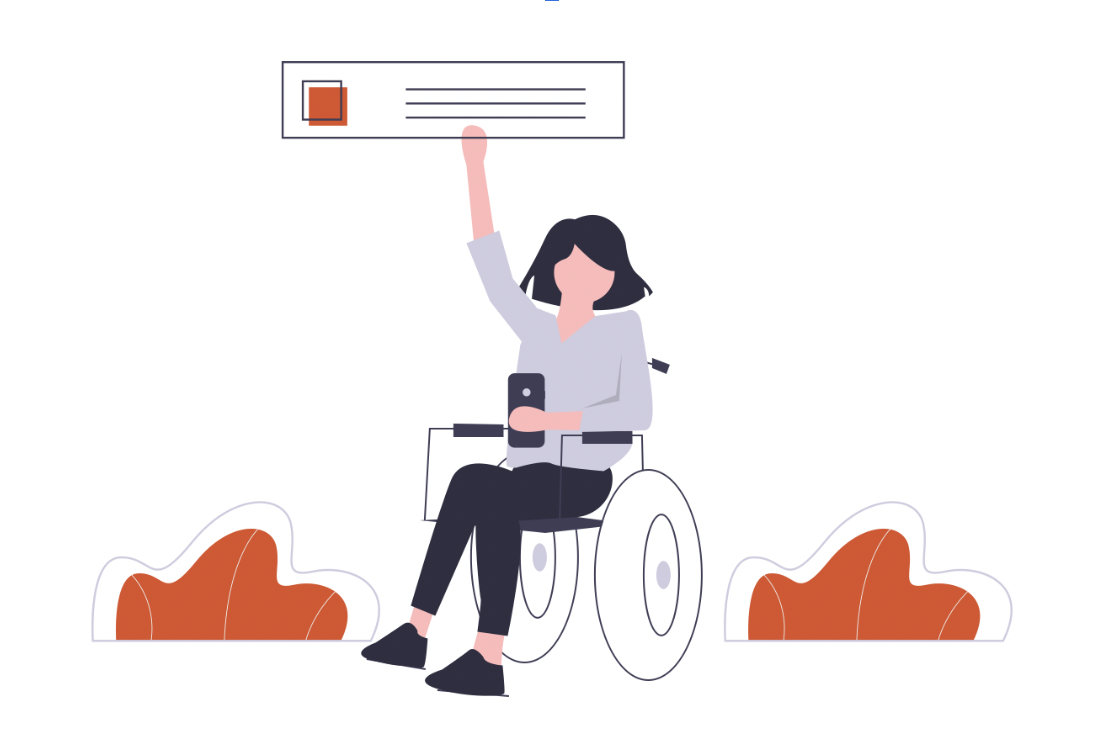Have you ever considered a career centered around empowering individuals with disabilities? As a vocational rehabilitation (VR) counselor, you can make a meaningful difference in people's lives by helping them overcome barriers to employment. This article covers everything you need to know to start on this rewarding professional path.
We'll explore what vocational rehabilitation involves, the critical role of VR counselors, educational requirements for the career, gaining valuable experience, key certifications, continuing education, licensure considerations, growth opportunities, and more. You'll also hear counselors’ perspectives on the profound personal and professional fulfillment this vital field offers.
So, if you feel called to serve a greater purpose through your work, read on to understand how to become a vocational rehabilitation counselor.
Understanding Vocational Rehabilitation
Vocational rehabilitation (VR) is a process that assists individuals with physical, mental, developmental, or emotional disabilities in overcoming barriers to accessing, maintaining, or returning to employment or other desired pursuits. It provides essential services to mitigate employment barriers for this population.
Specifically, the vocational rehab process involves:
- Assessing a person's skills, abilities, interests, experience and support needs
- Identifying suitable career options aligned with the individual's capabilities
- Providing counseling on navigating workplace challenges related to disability
- Coordinating necessary medical, psychological, or vocational assessments
- Arranging assistive technologies or workplace accommodations
- Developing individualized plans for job training, education, or skill-building
- Assisting with job searches, interviews, placements, and transitions
Educating employers and fostering inclusive hiring practices
Monitoring and supporting long-term employment success
This meaningful work profoundly impacts those served, from boosting economic empowerment to advancing independence and social inclusion.
The Pivotal Role of the VR Counselor
As a vocational rehabilitation counselor, you serve as the central guiding force for clients throughout their journey back to employment.
In this critical role, you meet with individuals to deepen your understanding of their abilities, interests, and needs. By leveraging your expertise in disability, healthcare, counseling, and careers, you connect clients with optimal rehabilitation resources while providing motivational support.
Supporting individuals as they face significant challenges demands compassion, patience, and commitment. However, guiding them through life-changing personal growth is deeply fulfilling. It's a privilege to become a part of each client's community and assist them in realizing their highest potential.
VR counselors also educate employers on how those with unique needs can maximize workplace contributions when provided the right conditions to thrive. You'll forge meaningful relationships across the community to expand access and inclusion.
Overall, vocational rehabilitation counseling offers a chance to:
- Directly improve quality of life for individuals with disabilities
- Acquire specialized expertise in disability, rehabilitation, counseling, and careers
- Build relationships with a broad range of clients and local professionals
- Solve complex problems with creativity and resourcefulness
- Advance diversity, equity, and inclusion for vulnerable groups
- Witness courage and resilience in those you serve
This hands-on work perpetuates a cycle of empowerment that uplifts us all.
Educational Requirements
Formal education is essential to understand the core foundations for practicing as a vocational rehabilitation counselor.
Typical requirements include:
Bachelor's Degree
A 4-year college degree in a field like psychology, sociology, counseling, or vocational rehabilitation provides a strong footing. Coursework develops human behavior knowledge, while internships offer real-world exposure.
Master's Degree
A graduate degree, specifically in rehabilitation counseling, takes your education to the next level. This degree usually involves two additional years focused on the following:
- Disability diagnostics across physical, sensory, cognitive, and psychological categories
- Client assessment methodologies
- Rehab theory and processes
- Barrier removal interventions
- Career counseling, guidance, and occupational information
- Job development and placement coordination
- Counseling techniques spanning individuals, groups, and families
- Healthcare and welfare systems navigation
- Case management and coordination
- Program evaluation, research, and evidence-based practice
- Ethics, advocacy, and disability law
These intensive programs require a supervised clinical practicum and an internship working directly with rehabilitation clients.
Many employers strongly prefer candidates who have completed a master's in rehab counseling or related discipline. This advanced expertise signals competence to provide specialized support services to enable employment.
Continuing Education & Specializations
Vocational rehabilitation is an evolving, multidisciplinary field requiring dedication to ongoing learning. Counselors regularly pursue continuing education or advanced certifications to remain effective.
Some options include:
- Assistive Technology Professional Certification
- Certified Life Care Planner
- Certified Rehabilitation Registered Nurse
- Licensed Professional Counselor
- Certificate of Clinical Competence in Speech-Language Pathology
Gaining Valuable Experience
Beyond formal education, experience in VR facilities is invaluable preparation for your career.
Practical exposure options include:
- Clinical Internships: Hands-on training programs place students in rehabilitation facilities serving individuals with disabilities. Working alongside experienced Certified Rehabilitation Counselors supervising your progress, you'll refine core skills in client engagement, assessment, counseling, treatment planning, case management, and more.
- Nonprofit Organizations: Many nonprofits aid those with disabilities through vocational services, from readiness to job training to placement. Volunteering or interning provides a lens into the full spectrum while making community connections.
- State Vocational Rehabilitation Agencies: Every state has a vocational rehabilitation agency coordinating essential employment-related services for residents with disabilities. These departments commonly take on clinical interns and job coaches.
- Federal Government Programs: Numerous federal organizations - like the Department of Veterans Affairs or the Department of Labor Office of Disability Employment Policy - fund critical vocational initiatives, particularly for veterans and youth. Opportunities exist through direct employment or grant-funded programs.
- Higher Education Disability Services: Colleges and universities have dedicated offices ensuring students with disabilities can access education. Departments rely on counselors, accessibility specialists, and assistive technologists to support diverse learning needs.
- The Village Network: Careers supporting individuals with disabilities thrive on strong community bonds across healthcare, education, employers, government, nonprofits, and peer networks. Seek out local groups addressing disability & employment for networking.
- Rehabilitation Centers: Gain well-rounded experience in inpatient and outpatient programs serving people recovering from injury, illness, and addiction.
- Mental Health Clinics: Develop strengths in addressing psychosocial aspects of disability and managing conditions like PTSD, anxiety, and depression alongside career development goals.
- Educational Institutions: Work directly with students, faculty, and administrators to coordinate accommodations and support struggling learners.
- Private Rehab Practices: Smaller specialty clinics allow for more customized interventions across ages, backgrounds and disability types.
- Veteran Services: Help former service members overcome combat trauma, loss of limb, and TBI to transition back to civilian life.
- Businesses: Corporate disability and benefits programs design innovative hiring initiatives and workplace accommodations.
Volunteering, job shadowing, interning, and simply connecting with current rehabilitation professionals gives you firsthand perspective while building relationships. However you choose to prepare for your career, interacting directly with individuals with disabilities is vital. Immerse yourself in that community to build knowledge, competence, and trust.
Obtaining CRC Certification
A significant way vocational rehabilitation counselors demonstrate specialized expertise is through professional certification.
The gold standard Credentialed Rehabilitation Counselor (CRC) designation is administered by the Commission on Rehabilitation Counselor Certification (CRCC).
The Certified Rehabilitation Counselor (CRC) is the only national certification recognizing specialized skills in this field. Over 18,000 counselors currently hold this distinguished mark of professionalism.
Earning your CRC demonstrates your commitment to ethical practice and advocacy for people with disabilities. It can lead to increased responsibilities, career advancement, and higher salary levels.
Earning this elite certification verifies specialized knowledge and experience in areas like:
- Foundations of rehabilitation counseling
- Assessment, diagnosis, and treatment planning
- Career counseling, placement, and ADA accommodation
- Healthcare systems and delivery models
- Ethics, legislation, and court systems
To qualify for CRC certification, candidates must meet stringent criteria through some combination of the following:
- Graduating from a Council for Accreditation of Counseling and Related Educational Programs (CACREP) master's rehabilitation program
- Documenting requisite coursework and clinical practice hours
- Having 1-6 years of supervised professional experience
- Maintaining licenses and ethical standing
This gold seal of excellence is preferred or required by many employers, earning hiring preference and higher salaries for CRC holders.
Preparing for the arduous CRC exam takes dedicated study of the multiple domains covered. Some helpful prep resources include:
- CRC Exam Prep Courses
- CRC Practice Exams
- CRC Exam Study Groups
- The Ultimate CRC Exam Prep Guide
Investing in earning your CRC opens more job opportunities to create meaningful change.
Continuing Education & Professional Development
As vocational rehabilitation techniques rapidly evolve, continuing learning is imperative, even post-certification.
Ongoing education ensures you can leverage the latest medical advances, technologies, regulations, workplace trends, and evidence-based best practices to serve clients.
Options to stay at the leading edge include:
- Conferences like the National Rehabilitation Educators Conference
- Short courses on emerging methods like Customized Employment
- Online vocational rehab skills-building like VR Development Group training
- Podcast series such as the Rehabcast or Advance Careers through Technology
- Membership in professional associations like the National Rehabilitation Association, offering journals, newsletters, discussion groups, and training discounts
Continuing education credits are required for maintaining CRC certification and other licenses. By prioritizing self-improvement, such as through YesLMS Courses, you enrich lives through expanded expertise.
State Licensure Considerations
Along with certification, vocational rehabilitation counselors must comply with state licensure rules to practice legally.
Requirements vary but often include:
- Holding a qualifying master's degree
- Logging hundreds of supervised clinical hours
- Passing the National Counselor Examination or another approved test
- Maintaining ethical good standing
VR Counselors should periodically renew licenses by completing continuing education courses. While state board websites explain steps, third parties like Counselor License provide helpful licensure guides for vocational rehabilitation counseling.
Career Growth and Specialization in Vocational Rehabilitation
A major advantage of VR careers is abundant advancement potential as you gain experience. Those committed to lifelong learning can elevate into senior specialist, supervisory, training/teaching, and leadership roles.
In particular, vital growth areas include assistive technologies, psychiatric rehabilitation, forensic vocational analysis, care coordination, customized employment solutions, and program administration.
For example, experienced counselors may steer toward positions like:
- Assistive Technology Manager: Oversee teams of specialists custom-engineering workplace tools and systems tailored to disabled employees' needs.
- Care Coordinator: Facilitate integrated health and vocational support across complex multi-stakeholder teams to achieve client goals.
- Customized Employment Specialist: Craft personalized job roles aligned with candidates' capabilities by collaborating closely with individuals, families, employers, and support networks.
- Forensic Vocational Expert: Inform legal proceedings by conducting specialized assessments on the vocational prospects and earnings losses of individuals who suffered disability/injury due to events like accidents.
- Rehabilitation Program Director: Develop, manage, and evaluate quality assurance for vocational rehabilitation teams serving those with disabilities through government, nonprofit, and private agencies.
- Training Director: Design, update, and deliver training programs on best practices in assessment, counseling, ethics, accessibility policies, and technologies for vocational support providers.
Rehabilitation teaching and research faculty roles are options, too, for those pursuing vocational rehabilitation doctorate degrees to educate future generations of specialists.
Rewards and Challenges of a Career in VR
VR counselors describe their work as tremendously meaningful. Assisting people as they gain skills, confidence, and independence is highly motivating. Other rewards include:
- Developing long-term supportive relationships with clients
- Promoting disability rights and inclusion
- Continually learning as the field rapidly advances
- Collaborating with diverse, passionate professionals
There are also inherent challenges in guiding vulnerable populations through a complex rehabilitation process. You manage frustration when progress stalls. Government budget cuts can increase caseloads and limit resources. Some clients lack the family support that is critical for success.
However, most counselors feel bolstered by experiencing clients achieve milestones once deemed impossible. Your expertise and advocacy make these triumphs happen!
As Linda, a 10-year CRC veteran reflects:
"Walking alongside brave individuals as they gain skills, confidence, and purpose is the honor of my career. The struggling mom now sustaining her family, the wounded veteran embracing new dreams, the bright graduate overcoming discrimination - their resilience drives me. I'm blessed to witness clients writing the next proud chapters of their lives thanks to vocational rehabilitation."
"In this work, you experience the human spirit - and your own spirit - rising."
If you feel called to serve, grab this chance to uplift others while achieving your highest self. Society needs more passionate rehabilitation counselors to create opportunities.
Pursue Your Passion for Transforming Lives
VR Development Group is your home for inspiring stories, career-enhancing webinars, and clinical tools to launch your career in VR. We hope this overview has resonated with your spirit of service while illuminating steps for professionalizing your instincts to uplift others. Consider embracing all that this profession offers in fusing evidence-based practices with boundless compassion.
You can help transform limiting beliefs into empowering realities. We can build a workforce with dedication and compassion where all unique talents contribute.
Now is the time to get equipped with the knowledge, skills, and voice to advocate for that better world through our courses. Let the rehabilitation educators at VR Development Group support your mission to open more doors through vocational access and inclusion.



